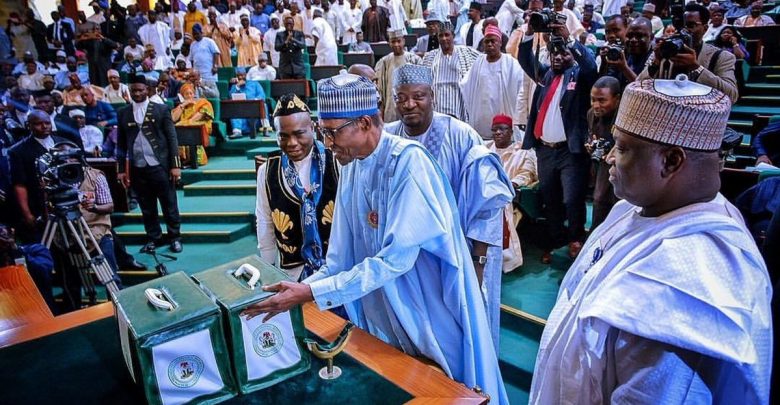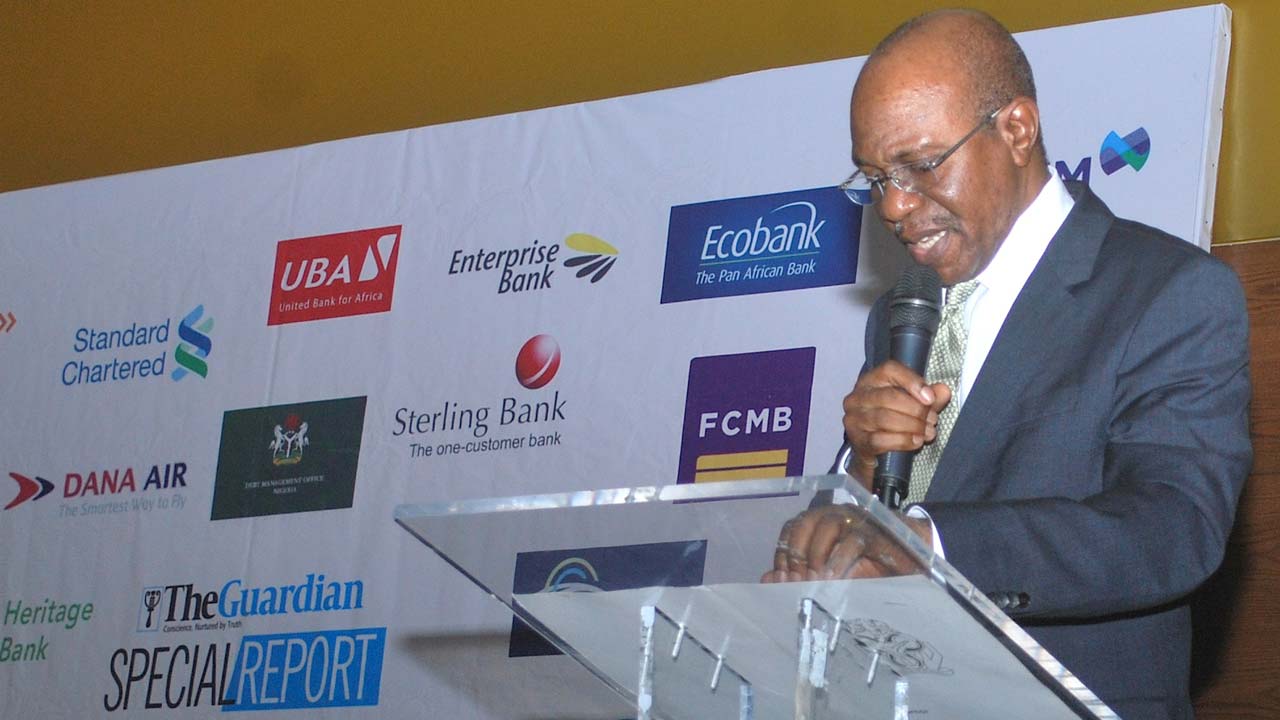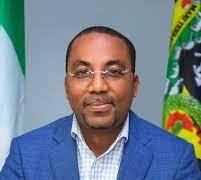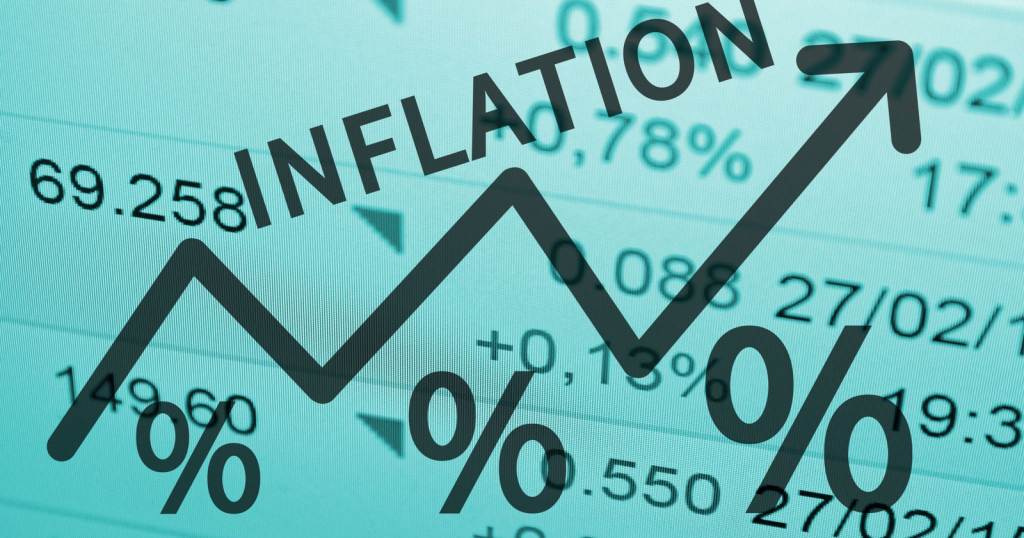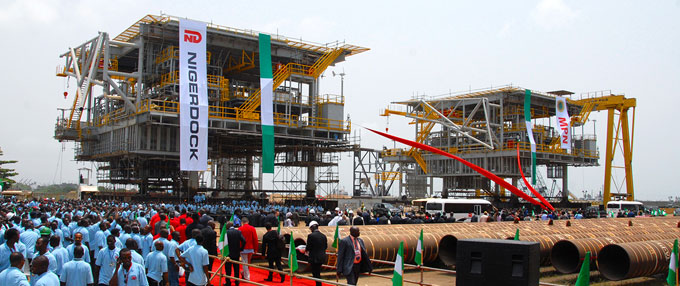Since the signing into law of the 2018 N9.1tn budget on Wednesday, financial analysts had been reviewing the real meaning of President Muhammadu Buhari’s remarks which were not so encouraging in the first instance.
President Buhari had regretted that some of the new projects inserted by the National Assembly had not been properly conceptualised, designed and cost and would therefore be difficult to execute and that “many of the projects cut were critical and might be difficult, if not impossible, to implement with the reduced allocation”.
This may be the basis upon which he accused the federal lawmakers of, among others, increasing the National Assembly budget from N125bn to N139.5bn, without any discussion with the Executive.
The President said as follows: “As I mentioned during the presentation of the 2018 Appropriation Bill, we intend to use the 2018 Budget to consolidate the achievements of previous budgets and deliver on Nigeria’s Economic Recovery and Growth Plan 2017-2020.
“It is in this regard that I am concerned about some of the changes that the National Assembly has made to the budget proposals that I presented.
“The logic behind the constitutional direction that budgets should be proposed by the Executive is that, it is the Executive that knows and defines its policies and projects.
“Unfortunately, that has not been given much regard in what has been sent to me. The National Assembly made cuts amounting to N347bn in the allocations to 4,700 projects submitted to them for consideration and introduced 6,403 projects of their own amounting to N578bn.
“Many of the projects cut are critical and may be difficult, if not impossible, to implement with the reduced allocation. Some of the new projects inserted by the National Assembly have not been properly conceptualised, designed and costed and will therefore be difficult to execute.
“Furthermore, many of these new projects introduced by the National Assembly have been added to the budgets of most MDAs with no consideration for institutional capacity to execute them or the incremental recurrent expenditure that may be required.
“As it is, some of these projects relate to matters that are the responsibility of the states and local governments, and for which the Federal Government should therefore not be unduly burdened.”
The president was quick to cite examples of projects from which cuts were made to include the provisions for some nationally/regionally strategic infrastructure projects such as counterpart funding for the Mambilla Power Plant, Second Niger Bridge/ancillary roads, the East-West Road, Bonny-Bodo Road, Lagos-Ibadan Expressway and Itakpe-Ajaokuta Rail Project which he said were cut by an aggregate of N11.5bn .
He said “The provisions for various strategic interventions in the health sector such as the upgrade of some tertiary health institutions, transport and storage of vaccines through the cold chain supply system, provision of anti-retroviral drugs for persons on treatment, establishment of chemotherapy centres and procurement of dialysis consumables were cut by an aggregate amount of N7.45bn.
“The provision for security infrastructure in the 104 unity schools across the country was cut by N3bn at a time when securing our students against acts of terrorism ought to be a major concern of government.
“The provision for the Federal Government’s National Housing Programme was cut by N8.7bn.
“At a time when we are working with Labour to address compensation-related issues, a total of N5bn was cut from the provisions for Pension Redemption Fund and Public Service Wage Adjustment.
“The provisions for Export Expansion Grant and Special Economic Zones/Industrial Parks, which are key industrialisation initiatives of this administration, were cut by a total of N14.5bn.
“The provision for construction of the Terminal Building at Enugu Airport was cut from N2bn to N500m which will further delay the completion of this critical project.
“The take-off grant for the Maritime University in Delta State, a key strategic initiative of the Federal Government, was cut from N5bn to N3.4bn.
“About 70 new road projects have been inserted into the budget of the Federal Ministry of Power, Works and Housing.
“In doing so, the National Assembly applied some of the additional funds expected from the upward review of the oil price benchmark to the ministry’s vote.
“Regrettably, however, in order to make provision for some of the new roads, the amounts allocated to some strategic major roads have been cut by the National Assembly.
“Another area of concern is the increase by the National Assembly of the provisions for Statutory Transfers by an aggregate of N73.96bn. Most of these increases are for recurrent expenditure at a time we are trying to keep down the cost of governance.
“An example of this increase is the budget of the National Assembly itself which has increased by N14.5bn, from N25bn to N139.5bn without any discussion with the Executive.”
However, in his concluding remarks, Mr. President averred that he decided to sign the document despite his observations so that the pace of recovery of the nation’s economy would not be further slowed down.
Besides, the two chambers of the National Assembly on Wednesday reacted to the concerns raised by President Buhari on the alterations made on the 2018 Appropriation Bill, saying the federal lawmakers did what they were supposed to do.
According to the Deputy Senate Leader, Alhaji Bala Ibn Na’Allah, the lawmakers were not worried about the concerns raised by the President because their job was a difficult one, noting that “The job of parliamentarians is a very difficult one. The way the budget came, if we had allowed it to go that way, we would have been in trouble with those who elected us.
“You have to balance between the six geopolitical zones. It is the balancing efforts by the National Assembly that led to those observations and happily enough, he himself has said he is coming with a supplementary budget which will be dealt with as quickly as possible. I assure you about that one.”

